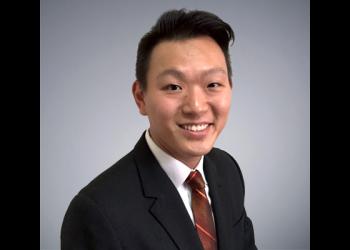Channeling the power of the freedom to believe
There is a burgeoning discourse on the freedom of religion, not least because of its connection with the freedom of expression, the politicization of religion and the violence perpetuated in the name of religion.
In Southeast Asia, regional-level spaces are emerging for the discussion of this important subject. Early this October in Bangkok, an unprecedented conference on “The freedom of religion or belief in Southeast Asia” convened religious groups, civil society and government representatives.
Supported by the presence of the UN Special Rapporteur on freedom of religion or belief, Heiner Bielefeldt, the gathering sought to build a common understanding of both positive and negative developments of this freedom and of approaches to advance it.
Enshrined in the Universal Declaration of Human Rights, the International Covenant on Civil and Political Rights and the ASEAN Human Rights Declaration, the protection of this freedom, known as the freedom of thought, conscience and religion, reflects universal sentiment about the inalienability of this freedom.
Human beings must be free to know and to believe.
We need to think more deeply about how this individual freedom can give rise to the advancement of society; let’s reconsider our understanding of the relationship between the individual person and the collective.
Almost all belief systems have a social dimension. What we believe impacts not only ourselves but also how we relate to one another and to society. The social reach of our beliefs requires us to examine our understanding of the dignity and nobility of man and how we express that nobility in society.
Human beings have been endowed with the power of reason. Through the faculty of reason, we investigate the world around us and seek to discover truth. By its aid, we make scientific discoveries and find solutions to social problems.
We are born with the innate capacity to continually refine our character, including through our engagement with others and with society. Is there any greater joy, that an individual, looking within him or herself, should find that she or he has become the cause of peace and well-being, of happiness and advantage to others?
Thus the freedom of religion or belief goes beyond a discussion of rights or privileges. It affirms our inherent capacity and desire to discover truth for ourselves. It allows us to find truth and to live a life of meaning built around what we have found. It also raises a profound awareness of the reciprocal relationship between individual development and the betterment of society.
So how should we promote and protect this freedom without falling into either extremes of unfettered individualism or suffocating collectivism?
In our increasingly inter-dependent and inter-connected world, the minimum standard of “do no harm to others” is no longer adequate.
Plurality and diversity oblige us to go beyond mere tolerance and to develop a more robust understanding of our individual and collective well-being. A starting point could be to deliberate on the concept of justice and how it is understood and applied to the freedom to believe.
At the individual level, justice implies that one has the obligation to be dispassionate, to be fair-minded in one’s judgments, and to show equity in one’s treatment of others.
At the collective level, a concern for justice is the essential compass in decision-making because it is arguably the only means by which diverse voices and perspectives can be equitably and duly considered. It is the practical expression of awareness that, in the achievement of human progress, the interests of the individual and those of society are inextricably linked.
Justice, then, is not something that is only meted out by governments or limited to the distribution and allocation of resources. It fosters a harmonious relationship between key actors — the individual, the community and social institutions. Justice binds us to our power of reason and compels us to work for the benefit of humanity. It also guides institutions and governments to ensure that each individual has true freedom to believe.
A number of profound questions then, merit further examination. For instance, what is an enabling environment for the individual to exercise his or her responsibility to independently investigate the truth?
What kind of educational systems nurture the faculty of reason? How can we develop this quality of justice in individuals?
Therefore, increasing support for freedom of thought, conscience and religion has great implications for the creation of stable and peaceful societies in our region.
____________________________________
- See more at: http://www.thejakartapost.com/news/2015/11/10/channeling-power-freedom-b...
